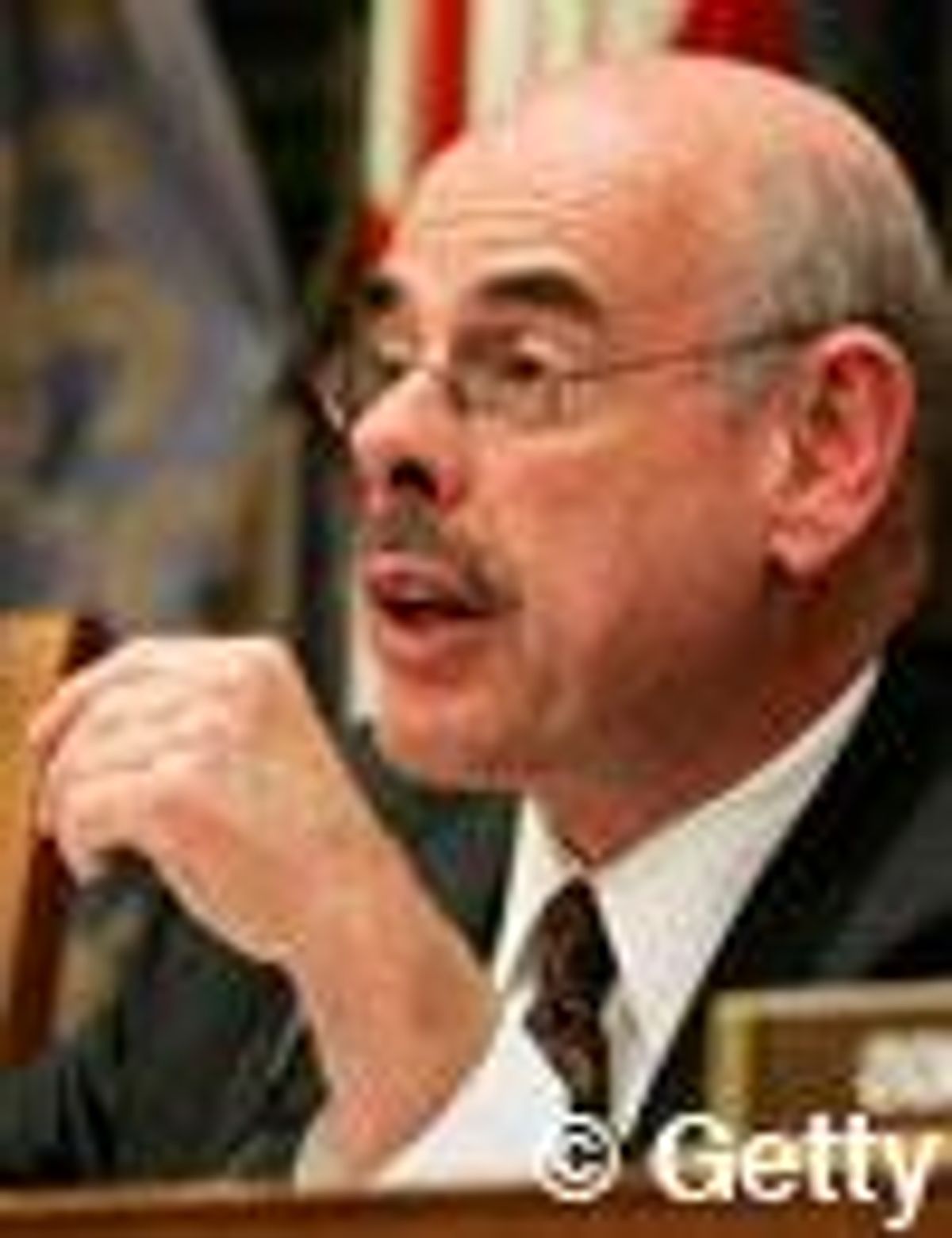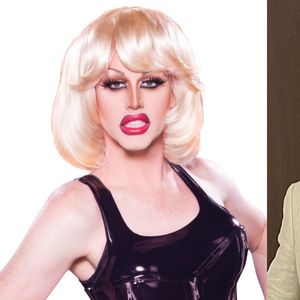What is your first memory of the AIDS epidemic?
In 1981 we were
battling the Reagan budget, which called for deep cuts in
public health programs, medical services, a lot of domestic
programs. And then we started hearing from the Centers
for Disease Control about a rare form of cancer called
Kaposi's sarcoma. And that it seemed to be affecting
gay men in a couple of cities. But the alarming part of it
was that it seemed to be spreading very, very fast. I
was quite shocked at it, because it looked like it was
going to multiply geometrically. This was before we
even knew the word "AIDS." It was very perplexing.
We held over
3,000 hearings over the years, and we got a lot of attention
and a lot of new money devoted to research, prevention, and
then, ultimately, treatment, especially after we
authored the Ryan White Act and it became law.
You were one of the few early congressional advocates for
federal spending on AIDS. What motivated your advocacy?
As the chairman
of the Health and Environment Subcommittee, I knew this
to be a major health issue. It was affecting gay men, which
meant that it wasn't being paid a lot of attention to
by the mainstream press. And there were people in
right-wing Republican circles who were urging
President Reagan not to talk about it, not to be personally
involved. On the other hand, we were working with
those here in the Department of Health and Human
Services -- even people who were appointed by President
Reagan--who were very concerned by this public health
problem. I represented a district with a large gay
population, and I felt even more incumbent on being
involved in the issue. But I think I would've been
involved under any circumstances, because this loomed as
such an enormous tragedy, and we could see that from
the very beginning.
What kind of reaction did you get from your constituents
about your support for AIDS funding in the early
years? How did that reaction change as the 1980s
wore on?
At first I
remember people saying to me, "Don't devote too much money
for research for AIDS. It's still a small group and we've
got to spend money fighting cancer and other diseases
that affect so many other people." I made the point to
them and consistently to everybody that the money we
spent on AIDS research was going to have a multiplying
effect, because we were going to learn about this disease
and it would help us learn about other diseases as
well. But we also needed to act with urgency, because
while all those other diseases affected more people,
AIDS was spreading quite rapidly.
In "And the Band Played On," Randy Shilts' appraisal of
your commitment to the AIDS fight is occasionally
lukewarm. He feels you and others in Congress
could have fought harder. Looking back, do you agree
with him?
I don't agree
with him. I don't think there's anything that we could have
done that we didn't do. We were faced with an administration
that was not eager to be helpful. President Reagan
wouldn't even mention the word "AIDS" until he was
practically out the door as president. And we were
faced with a hint of what we're now dealing with, and that
was a governing philosophy by those in power who
wanted to shortchange domestic government spending so
that they could give tax breaks to the wealthy.
The controversial 2003 Showtime miniseries "The Reagans"
would have us believe homophobia was to blame for
the president's reluctance to deal with AIDS.
Others would say extreme fiscal conservatism was the culprit.
I suppose it was
a combination of all of those things. I don't think it
was until Elizabeth Taylor went in to see him in person, to
talk about the issue [that he made his first address
about AIDS, in 1987]. I think Elizabeth Taylor was a
reminder to him of all the people he knew in the
industry who were gay, and that he couldn't in good
conscience ignore the problem any longer.
Some argue that if the U.S. had called the alarm much
sooner and paid as much attention to AIDS as they
did to legionnaire's disease, toxic shock
syndrome, SARS or avian flu, the epidemic would have
been largely thwarted in this country. What do you think?
I certainly think
that we were at a disadvantage in trying to get
attention to the issue, because it first affected gay men,
and then later it was also affecting drug users -- two
groups that were marginalized in the minds of the
American people and the press. Had it affected the white
middle-class heterosexual population, I think there would
have seen a much stronger reaction.
On the other
hand, the gay community was a group that was able to direct
a lot of its attention and resources to dealing with the
disease. I remember the group ACT-UP, and how people
from that organization learned the Food and Drug
Administration laws better than the lawyers at the FDA.
So they could go to that agency and insist that some drugs
be used, even though [the drugs] didn't have final
[FDA] approval, particularly since many of these
people wouldn't live to the point where the drug was
approved. The FDA finally accepted their argument that there
should be some "compassionate use" of the drugs before
final approval.
What do you think about the first President Bush's
response to AIDS?
Not too much
better than Reagan's. He did keep [Surgeon General] C.
Everett Koop on from the Reagan days. Koop was a great hero
in talking about this epidemic.
AIDS brought homosexuality to American dinner table
conversation. How was this new topic greeted on
Capitol Hill in the 1980s?
I think it was an
eye-opener to many people around the country. Because
they recognized that there were people they knew, people
they were related to, people in their own families who
were gay--not just some group that was
ghettoized in some place.
How would you define the difference between Republicans
and Democrats when it comes to AIDS politics in 2006?
I don't want to
over-generalize. The Republicans right now are so captive
of the extremist religious right wing, which has hostility
to homosexuals, but for the moment they're focused on
gay marriage. There were [prominent] Republicans in
the Reagan and Bush administrations who were very
anxious to fight this epidemic. But by and large, I think we
had a problem on the Republican side.
I think it's been
helpful that we have this report out in the public,
because it highlights how taxpayers' dollars are being
wasted on programs that are ineffective. The curricula
used in public schools around the country, as well as
in some private schools that have received sexual
abstinence-only funding, have just misrepresented basic
public health information--even to the point
where they were saying that AIDS is spread through
sweat and tears. The harm was also in the fact that young
people taking abstinence-only programs without taking
basic public health information were more likely to
get sexually transmitted diseases and unintended
pregnancies--because they were being kept ignorant.



















































































